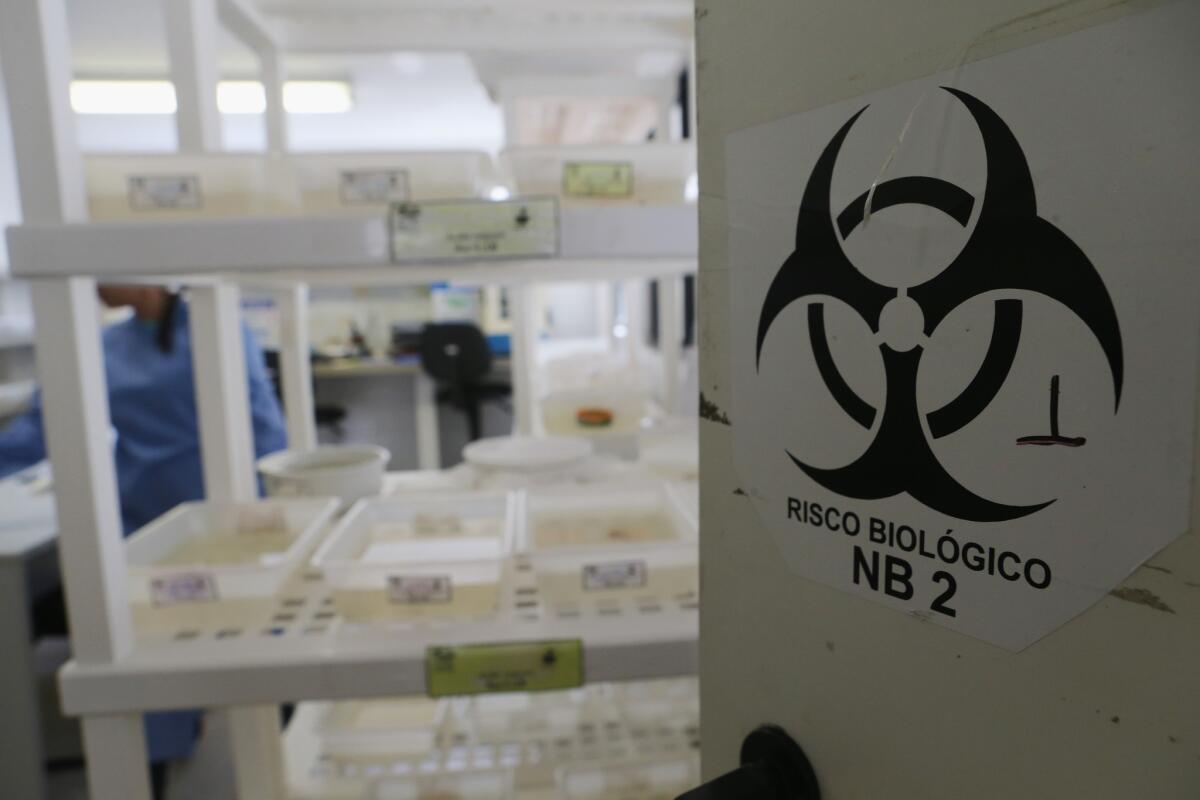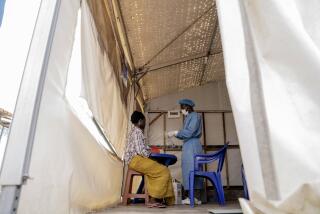Editorial: No reason to panic as Zika pandemic ‘explodes’ across the Americas

Aedes aegypti and other mosquitos are contained in a lab at the Fiocruz institute in Brazil. The Aedes aegypti mosquito transmits the Zika virus and is being studied at the institute.
- Share via
It is entirely reasonable to be concerned about what the World Health Organization is calling the “explosive” spread of Zika virus across the Americas. It’s reasonable as well to demand that health officials at home and abroad move expeditiously to combat the virus and that they proceed on the assumption — as yet unproved — that the mosquito-borne virus can cause severe birth defects. Pregnant women would be wise to rethink trips to Brazil and other Zika hot spots, and, of course, to take precautions to avoid mosquitoes.
What is not reasonable at this early stage in the pandemic is to overreact — particularly in the United States, where the outbreak is expected to be mild, according to officials at the Centers for Disease Control and Prevention. While authorities in Puerto Rico, El Salvador and other Latin American countries are already taking the drastic step of advising women to refrain from having babies for the immediate future, such measures are not necessary in the U.S. at the moment.
One reason the U.S. won’t be so badly affected is because of the experience gained from preparing for previous outbreaks of imported pathogens — H1N1, SARS, MERS and Ebola among them. Also because of the widespread use of window screens and air conditioning in areas where the particular mosquito that carries Zika — Aedes aegypti — is commonly found, including California. WHO officials, who were criticized for not moving fast enough during last year’s Ebola outbreak, have been responding quickly to Zika, as have officials at the CDC and in California and L.A. County.
For 80% of people who are infected, the virus is usually mild; a rash and a fever are common symptoms. But scientists have become increasingly concerned about a possible connection to microcephaly, a rare condition in which babies are born with small heads and brain damage. Some 3,500 cases have been diagnosed in babies born to Brazilian women, many of whom were infected with Zika, and though there is no definitive evidence, the suspected link is strong enough to warrant urgent study.
World Health Organization officials say determining whether there really is a link will take at least six months and that it could be at least a year before there’s a vaccine. That’s worrisome because half a million people are expected to stream into Rio de Janeiro for the summer Olympic Games in August. Finding the link, if there is one, should be put at the top of the WHO’s agenda during its emergency meeting Monday.
Follow the Opinion section on Twitter @latimesopinion and Facebook
More to Read
Sign up for Essential California
The most important California stories and recommendations in your inbox every morning.
You may occasionally receive promotional content from the Los Angeles Times.













